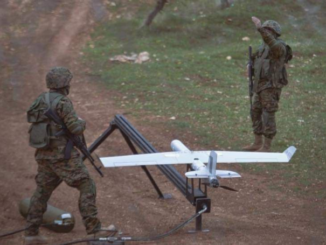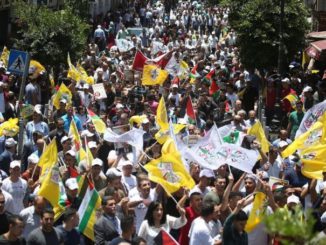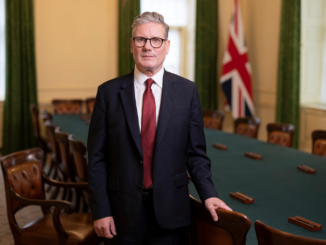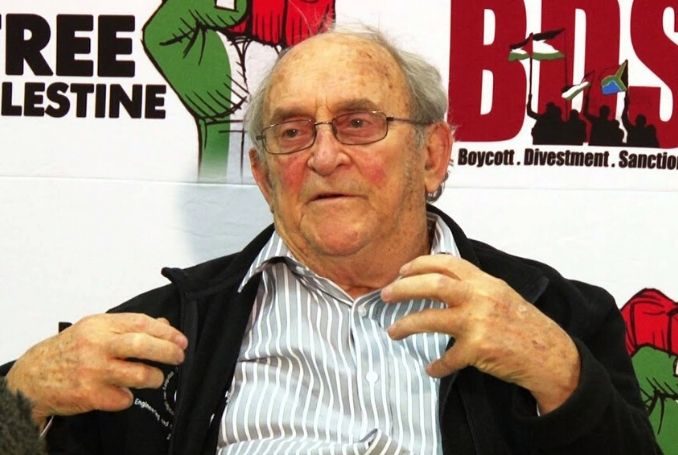
My enduring memory of Denis Goldberg, who died in Cape Town, just after the 26th anniversary of South Africa’s freedom day, comes from his late mother’s lips.
A frail Annie Goldberg recounted to me in London two years after the conclusion of the Rivonia Trial, where the death penalty had been anticipated, her impression of Denis calling out to her in jubilation: “Mother it’s life. A life to live.”
Denis later explained to me, that the words actually were “Life! Beautiful life.” No matter the discrepancy, both are reflective of his effervescent optimism. After the trial he was deeply upset at being separated from Mandela and his comrades who were dragged off to Robben Island the prison complex for blacks, while he was incarcerated at the whites-only section of Pretoria prison. Even in prison apartheid segregation between the races applied.
Denis led a remarkable life rich in courage and commitment, kindness and generosity. Where the pendulum swung between pain and joy, breaking-point and strength, he persevered to demonstrate that conviction and principle could trump doubt and adversity.
His lodestar was service to humanity. He sought no personal benefit, privilege or power. His concern was of advancing the welfare and wellbeing of the downtrodden including as an anti-Zionist Jew that of the Palestinian people. He was a person of moral integrity, humor and goodwill. His personal sacrifice was an inspiration for SA and worldwide. Obituaries refer to him as a “giant”. My accolade for him is a “mensch” — a good person. He would prefer that.
This is not to say he had no vanity. He enjoyed signing off as “Rivonia trialist 3rd accused” for those who bought his memoir The Mission. Mandela and Walter Sisulu were 1 and 2 accused. A quirk of the charge sheet elevated his status above Govan Mbeki and Ahmed Kathrada, among others.
When I pulled his leg about such effrontery, he waved aside any accusation of egoism: “Well you may say it’s my chutzpah [Yiddish for audacity] if you wish.” He never denied his Jewish origins, was prepared to go to remarkable lengths to debate with Jews of all persuasions, but was steadfast in his support for the Palestinian struggle.
He had been at the Rivonia farm that day of the raid, but not as a member of the leadership. As they were meeting, and the police raid launched, he was resting in another room. He enjoyed relating how he had instinctively run to the toilet, to shred the incriminating pages of his notebook, and tried flushing the paper away.
Lionel “Rusty” Bernstein, pessimist to Denis the optimist, also arrested at the meeting, recounts how deep in despair he was as they were being carted away in a police vehicle, and how Denis had got on his nerves with his irrepressible gallows humor. There was seemingly nothing that could quell Goldberg’s spirited way of dealing with adversity right through to the end of his life.
Denis might not have been part of the military high command, but he joined the organization at its inception in 1961, and became a regional commander in the Western Cape. He was 31 at the time of his arrest, by far the youngest of the Rivonia trialists.
His parents settled in South Africa, as immigrants from to escape the Czarist pogroms. He grew up in a mixed-race area of Cape Town, where his father had a small cartage business. Both parents were members of the Communist Party and Denis’s upbringing in a non-racist home during World War 2, and the struggle against fascism, shaped his views.
“I understood that what was happening in South Africa with its racism was like the racism in Nazi Germany in Europe that we were supposed to be fighting against,” he explained.
It was his revulsion at the racism he witnessed growing up, that became the driving force for his life’s journey, marking him out as so different from 99% of the white population.
He commenced his studies in civil engineering at the University of Cape Town (UCT) at the age of 16. By the time he graduated he was a member of the ANC-led liberation movement and the underground communist party. In the wake of the Sharpeville massacre of 1960 both he and his mother spent four months in detention for their political activism.
I first met Denis in Durban early in 1961. To me, a relative newcomer, he was an experienced 28-year-old with an irresistible joy de vivre. I was five years his junior and had much to learn from him — the kind of fellow you’d like as a big brother. He had arrived in a battered bakkie, and was driving around the country keen to know the rural villages and way of life. In denim trousers and sleeves-rolled-up, he struck one as a man who could use his hands and was unafraid to get them dirty.
At the time, unknown to one another, we had been recruited into the armed struggle. In retrospect I came to realize why Denis was driving around the less-traveled roads of SA. Rather romantically, I came to see him as akin to a young Che Guevara’s motorcycle reconnaissance of Latin America. Guevara famously said that “revolution is an act of love”, a maxim illustrative of Denis Goldberg’s humanism.
One would have thought that the vagaries of life would have knocked the stuffing out of Denis. After more than 20 years of imprisonment that came close to happening. His parents had died, his wife Esme and children were in London, and she was too traumatized to visit him. The void had been filled by a friend, Hillary Kuny (now Hamburger), his sole visitor. They formed a close bond and she got to know him well, impressed by his cheerful resolve.
By 1985, however, she began to discern a worrying change: “He laughed less, his shoulders were more hunched, and there was a creeping deadness in his eyes. On one of my visits, he told me with something akin to despair in his voice that he had said goodbye to 48 comrades who had served their much lesser sentences. While he celebrated their release, the interminability of his sentence was brought into sharp focus.”
A lifeline appeared, in the unlikely guise of an Israeli non-government negotiator, who specialized in getting Jewish prisoners around the world released. The apartheid regime, keen to deepen ties with Israel, agreed to release Goldberg on condition he would not advocate violent struggle against South Africa. He would have to fly directly to Israel where his saviors hoped he would settle. There was much speculation about this but it emerged that Denis’s daughter Hillary, living on an Israeli kibbutz, had a hand in the rescue mission, without on the surface the direct intervention of the Israeli government.
There was never any basis to some claims that he wished to live in Israel. He abhorred Zionism, and unreservedly supported the Palestinian cause. From the moment he landed in Israel he lambasted the government for their close ties with the Apartheid regime. He often explained: “Having lived through apartheid in SA, there’s no doubt in my mind that Israel is an apartheid state.”
He soon traveled to Britain to join his wife and son who was now a grown man.
In exile Denis threw himself into full-time ANC activity, becoming one of the movement’s most impressive speakers. He became involved in many creative enterprises such as transforming a London-based charity called Community HEART into a highly effective distributor of educational books and equipment for schools throughout Southern Africa. It functions to this day as one of his many legacies and their books still arrive in SA.
I brought Denis home in 2002 to join me as ministerial adviser in my water and forestry portfolio. This was soon after his wife Esme died and then the tragic death of his daughter Hillary who had left Israel to resume life in Britain. He was in his element visiting rural villages, reporting back on the progress of water projects. He was passionate about developing some of the forestry resources into small-scale business for nearby villages. At the Pretoria head office he was often mistaken for me, given our common ancestry there was a likeness. Denis in correcting the error delighted in telling people he was the handsome one.
Denis remained a loyal ANC member, and in time was to receive the highest honors the organization and country could bestow. His party loyalty did not restrain him from emerging as a fierce critic not only of the corrupt Zuma Presidency but the corruption and rot that continues to beset the ANC. We disagreed about whether it was better to be a critic from inside or outside the tent. He believed that the only vehicle that could drag us out of the mess was a reformed and rejuvenated ANC.
People from all over visited him in his Hout Bay home overlooking the sea before and after the cruel illness that struck him. In pain and adversity, he raised funds for upliftment projects of impoverished communities; football equipment for the youth; a rape crisis center, a music academy.
Phoning him ahead of a visit he would instruct one to buy packages of fish and chips from a local cafe for a shared lunch. By then he was on an oxygen machine and moved about using a walking frame. Amazingly if he needed to get somewhere quickly, and there were no helpers around, he connected his breathing apparatus to a battery on the passenger seat of his car and sped off.
With his death, after a debilitating illness bravely borne, the government has announced four days of national mourning. I can imagine Denis the mensch chirping, that with the coronavirus lockdown there couldn’t be much revelry anyway.
South African Zionists are now laying claim to him, on the basis that he was prepared to engage in discussions with them. He was prepared to debate with anyone, as he had been with his prison warders, but was firm in his allegiances and was a champion of the Palestinian cause to the very end.
(A version of this article was originally published in the Business Day newspaper)
– Ronnie Kasrils is an ANC and Communist Party struggle stalwart and former government minister. He contributed this article to The Palestine Chronicle
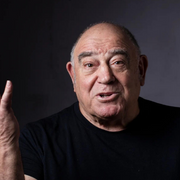
– Ronnie Kasrils, veteran of the anti-apartheid struggle, and South Africa’s former Minister for Intelligence Services, activist and author. He contributed this piece to The Palestine Chronicle

